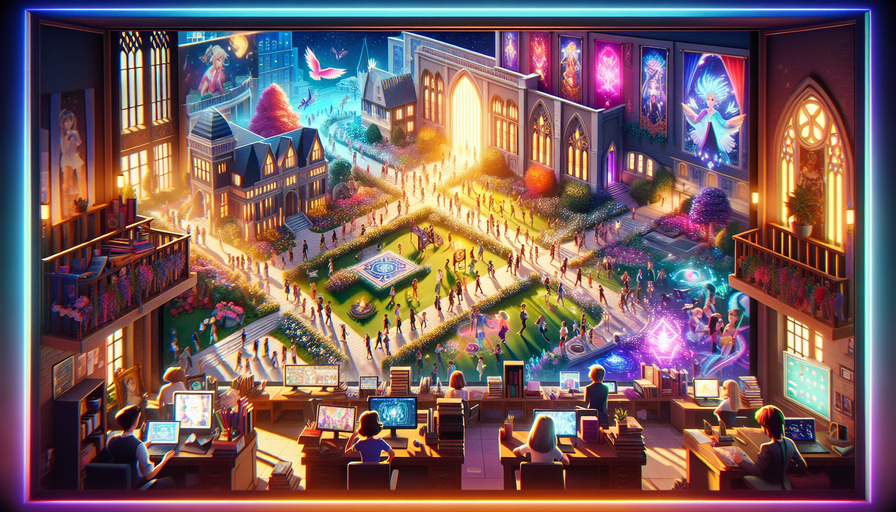In recent years, the gaming industry has seen a rise in the popularity of educational role-playing games (RPGs) that combine learning and entertainment seamlessly. One such game that has captured the attention of both parents and children is Prodigy. This article delves into the world of educational RPGs like Prodigy, exploring their features, benefits, and why they have become a favorite among players of all ages.
The Rise of Educational RPGs
Educational RPGs are a unique genre that merges traditional role-playing game elements with educational content. These games aim to make learning fun and engaging by incorporating academic subjects such as mathematics, science, language arts, and more into the gameplay. By doing so, they provide an interactive and immersive learning experience that motivates players to improve their skills while having fun.
Features of Games like Prodigy
Games like Prodigy typically feature a fantasy-themed world where players create and customize their characters to embark on quests, battle monsters, and solve puzzles. What sets these games apart is the integration of educational challenges within the gameplay. For example, in Prodigy, players must solve math problems to cast spells and defeat enemies. This unique approach not only reinforces academic concepts but also encourages critical thinking and problem-solving skills.
Additionally, these games often include progress tracking tools that allow parents and educators to monitor players’ performance and identify areas for improvement. By providing real-time feedback and personalized learning experiences, educational RPGs empower players to learn at their own pace and gain confidence in their abilities.
Benefits of Playing Educational RPGs
There are several benefits to playing educational RPGs like Prodigy. Firstly, these games make learning enjoyable by presenting academic content in a fun and interactive way. This can help increase motivation and engagement among players, making them more likely to retain information and develop a positive attitude towards learning.
Furthermore, educational RPGs promote cognitive skills such as problem-solving, critical thinking, decision-making, and strategic planning. By challenging players to think creatively and analytically within the game’s context, these games help develop essential skills that are applicable beyond the virtual world.
Moreover, playing educational RPGs can improve academic performance by reinforcing key concepts in subjects like math or language arts. The repetitive nature of solving problems or completing tasks in-game can lead to better retention of information and mastery



